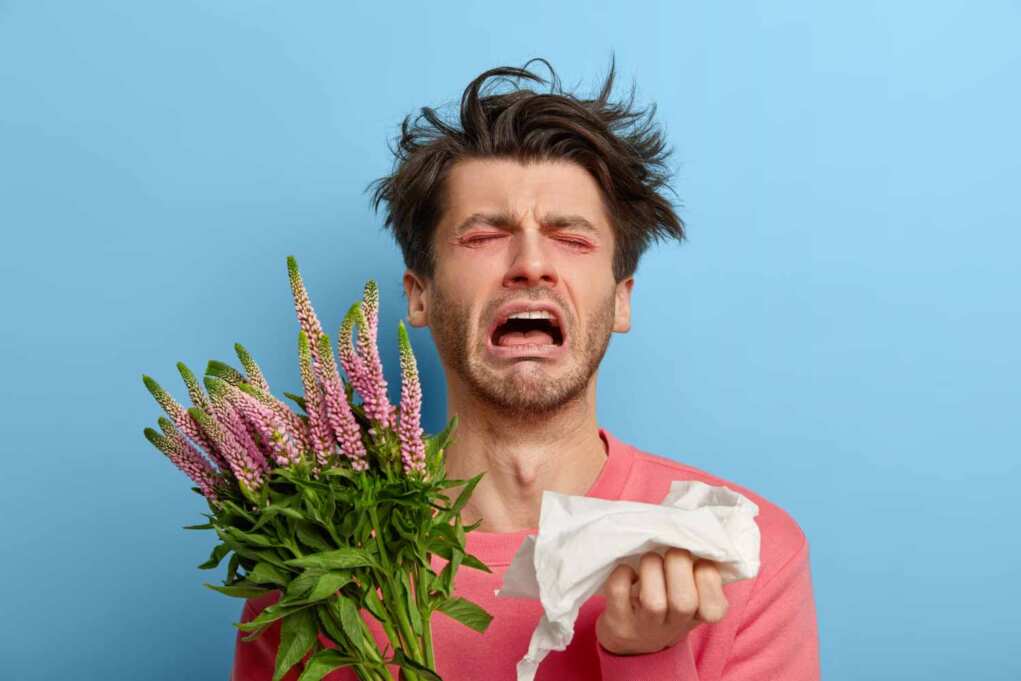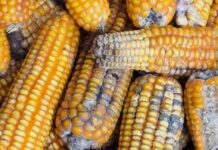
What Is Hay Fever?
Hay fever is an extremely common allergic condition which is also known as seasonal allergic rhinitis. It affects between 10 per cent and 30 per cent of all adults and as many as 40 per cent of children in the UK. People are more likely to suffer from hay fever if they have a family history of asthma, allergies or eczema. In essence, hay fever is an allergic reaction to pollen.
Hay Fever In Infants & Children
Hay fever is most common in children, especially teenagers, due to the changes they experience during puberty. Symptoms tend to reduce in severity with age, but can continue into adulthood. It rarely develops in children before the age of 2 due to the amount of time they spend indoors. It’s more common in children older than 4 years. They experience similar symptoms, however due to the irritation children experience, they can interfere with sleep and daily activities at school.

Causes & Symptoms
Hay fever is caused when the immune system reacts to pollen, dust mites, or tiny amounts of skin or saliva from animals. When this happens, the body produces a specific antibody called immunoglobulin E (IgE) in some people. This makes the body believe that the pollen, or equivalent, is harmful and IgE triggers substances from the eyes, nose and throat. One of these substances is histamine, which causes hay fever symptoms.
There are a variety of hay fever symptoms which include sneezing, watery itchy eyes, a runny nose, headache, lethargy and an itchy mouth throat. Symptoms are commonly experienced between the months of March and September when the pollen count is high.
Triggers
Symptoms are very much dependant on the time of year and where in the country people live. Living in south and central UK may mean people experience hay fever earlier in the year that lasts longer. Symptoms can be worse on hot, dry days when the wind carries the pollen. The hay fever season changes year to year in length and severity, so it’s also important for people to know what they are allergic to. Tree pollen is more common in early spring (February to June), grass pollen is more common later in spring and summer (May to July) and pollen weed occurs into the summer (June to September).

How To Manage Symptoms
Currently there is no cure for hay fever, but symptoms can be alleviated with treatment. The most common first line treatment is over-the-counter medication including tablets, nasal sprays or eye drops from a pharmacist. There are numerous options to choose from and it’s about finding the right combination for you. Taking them two or three weeks before the season begins is often recommended and medication is often required daily.
When You Should Speak To Your Doctor
Speaking to your GP is important if you suffer other medical conditions, such as asthma, which may be making your hay fever worse. Also, if symptoms are severe or last all year round, advice from your GP is important. Over-the-counter medicines are usually effective, but if not, you should make an appointment to see your GP for stronger treatment options available on prescription.
Important Notice: This article was originally published at www.bbcgoodfood.com by Emer Delaney – Dietitian where all credits are due.
Disclaimer
The watching, interacting, and participation of any kind with anything on this page does not constitute or initiate a doctor-patient relationship with Dr. Farrah™. None of the statements here have been evaluated by the Food and Drug Administration (FDA). The products of Dr. Farrah™ are not intended to diagnose, treat, cure, or prevent any disease. The information being provided should only be considered for education and entertainment purposes only. If you feel that anything you see or hear may be of value to you on this page or on any other medium of any kind associated with, showing, or quoting anything relating to Dr. Farrah™ in any way at any time, you are encouraged to and agree to consult with a licensed healthcare professional in your area to discuss it. If you feel that you’re having a healthcare emergency, seek medical attention immediately. The views expressed here are simply either the views and opinions of Dr. Farrah™ or others appearing and are protected under the first amendment.
Dr. Farrah™ is a highly experienced Licensed Medical Doctor certified in evidence-based clinical nutrition, not some enthusiast, formulator, or medium promoting the wild and unrestrained use of nutrition products for health issues without clinical experience and scientific evidence of therapeutic benefit. Dr. Farrah™ has personally and keenly studied everything she recommends, and more importantly, she’s closely observed the reactions and results in a clinical setting countless times over the course of her career involving the treatment of over 150,000 patients.
Dr. Farrah™ promotes evidence-based natural approaches to health, which means integrating her individual scientific and clinical expertise with the best available external clinical evidence from systematic research. By individual clinical expertise, I refer to the proficiency and judgment that individual clinicians acquire through clinical experience and clinical practice.
Dr. Farrah™ does not make any representation or warranties with respect to the accuracy, applicability, fitness, or completeness of any multimedia content provided. Dr. Farrah™ does not warrant the performance, effectiveness, or applicability of any sites listed, linked, or referenced to, in, or by any multimedia content.
To be clear, the multimedia content is not intended to be a substitute for professional medical advice, diagnosis, or treatment. Always seek the advice of your physician or other qualified health providers with any questions you may have regarding a medical condition. Never disregard professional medical advice or delay in seeking it because of something you have read or seen in any website, video, image, or media of any kind. Dr. Farrah™ hereby disclaims any and all liability to any party for any direct, indirect, implied, punitive, special, incidental, or other consequential damages arising directly or indirectly from any use of the content, which is provided as is, and without warranties.







